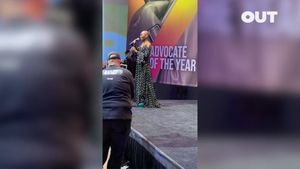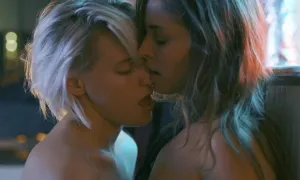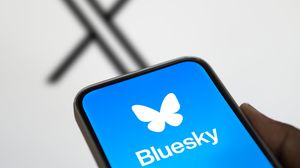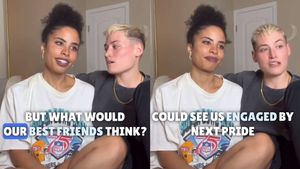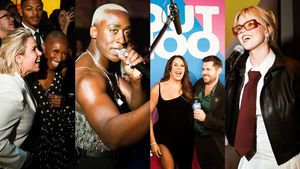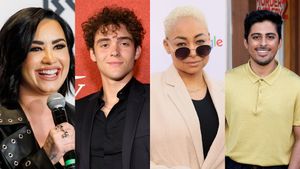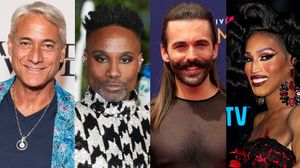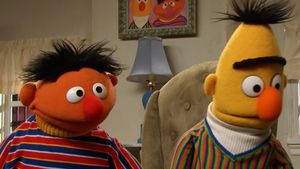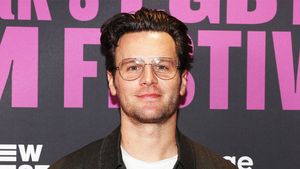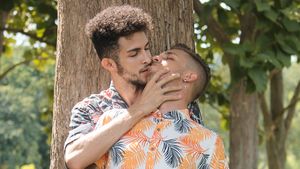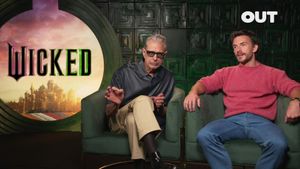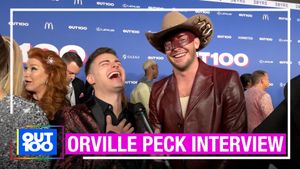 Stories belong to everyone. As a filmmaker who is also openly HIV-positive, this has been one of my personal and creative mantras for many years. Every year on June 5th, this guiding principle takes on a deeper meaning for me as we quietly mark the solemn anniversary of the first time the Centers for Disease Control and Prevention publicly acknowledged the virus in 1981, admitting that a handful of gay men in Los Angeles had pneumocystis pneumonia (it was the first official recognition of what would later be called AIDS).
Stories belong to everyone. As a filmmaker who is also openly HIV-positive, this has been one of my personal and creative mantras for many years. Every year on June 5th, this guiding principle takes on a deeper meaning for me as we quietly mark the solemn anniversary of the first time the Centers for Disease Control and Prevention publicly acknowledged the virus in 1981, admitting that a handful of gay men in Los Angeles had pneumocystis pneumonia (it was the first official recognition of what would later be called AIDS).
In 2015, this day takes on even greater significance for me. Today, my filmmaking partner, Jörg Fockele, and I celebrate the launch of GenerationsHIV.org — a new online video archive that will soon feature over 1,000 testimonials about HIV and AIDS by people from all walks of life.
Five years in the making, Generations HIV is a digital media AIDS quilt for the 21st century, and it is poised to become the most comprehensive video platform on the Internet about HIV and AIDS. However, it began rather humbly back in 2010 as the kernel of a very simple idea. At a time when public discussions of HIV and AIDS were clearly waning, we wondered, what if you created a story-centric experience — in this case an interactive video storytelling booth (pictured below) — that encourages people from different generations and demographic backgrounds to talk to one another about how HIV and AIDS has impacted and affected all of our lives in different ways over the past 34 years?
In our case, we leveraged the talents of a team of young technology developers to create a touch-screen app inside a private video booth that is easy to navigate — one that encourages people to record questions for people from other generations and answer other people's questions. The results have been pretty much staggering.
Over time, we partnered with over 30 HIV and AIDS funders and nonprofits to bring our storytelling booth into places and spaces that serve diverse and underserved communities in San Francisco, Oakland, and Washington, DC. And, what we found is that people are actually quite hungry to speak and be heard when it comes to HIV and AIDS. In many instances, people entered our booth pretty confident that they did not have a story to share about HIV or AIDS only to exit the experience transformed, inspired, even grateful. Time and again, telling our HIV stories — whether HIV-positive or HIV-negative — proves to be essential to our survival, our ability to heal, and our way forward as a community.
Generations HIV's interactive video storytelling booth
 On June 5th, we now also mark National HIV/AIDS Long Term Survivors Awareness Day, especially to honor those who have been living with HIV since the earliest days of the pandemic. In fact, the launch of the Generations HIV online video archive has been deliberately timed to coincide with this commemoration to help communities connect the dots when it comes to the power and relevance of story.
On June 5th, we now also mark National HIV/AIDS Long Term Survivors Awareness Day, especially to honor those who have been living with HIV since the earliest days of the pandemic. In fact, the launch of the Generations HIV online video archive has been deliberately timed to coincide with this commemoration to help communities connect the dots when it comes to the power and relevance of story.
Certainly, as we enter the 35th year of the global HIV pandemic, people are now living longer, and our stories are becoming more nuanced, complex, and challenging. Now more than ever, the need for powerful storytelling programs remains paramount to any HIV or AIDS community-building strategy.
On National HIV/AIDS Long Term Survivors Awareness Day, we need to remember that all of us are survivors in our ways and that #EverySurvivorCounts. To be sure, every HIV story is an integral part of the fabric of our shared experience. With that in mind, it is my sincere hope that the GenerationsHIV.org online video archive will emerge over time as a gathering place for all of us to recall, remember, and look ahead to the future.
For me, this is a lifelong commitment. I will continue to do my part by making films about HIV and AIDS until we can confidently say we’ve conquered this chilling and horrible disease. I will also work to help others find their voices and share their stories. The greatest gift we can give each other is a voice. Here’s to you finding your own in your time.
 Marc Smolowitz is an awarding winning independent filmmaker based in San Francisco. He works as a director, producer, and executive producer with a focus on powerful social issue filmmaking across all genres. In 2009, he co-founded The HIV Story Project, a nonprofit that bridges HIV/AIDS with film, media, and storytelling to fight the spread of the pandemic and the global stigma associated with it. His latest film as a producer, Desert Migration, is the first comprehensive film about HIV, aging, and long term survivors. It will premiere at Frameline in San Francisco on June 25th and at Outfest in Los Angeles on July 13th.
Marc Smolowitz is an awarding winning independent filmmaker based in San Francisco. He works as a director, producer, and executive producer with a focus on powerful social issue filmmaking across all genres. In 2009, he co-founded The HIV Story Project, a nonprofit that bridges HIV/AIDS with film, media, and storytelling to fight the spread of the pandemic and the global stigma associated with it. His latest film as a producer, Desert Migration, is the first comprehensive film about HIV, aging, and long term survivors. It will premiere at Frameline in San Francisco on June 25th and at Outfest in Los Angeles on July 13th.
Watch the trailer for Desert Migration below.
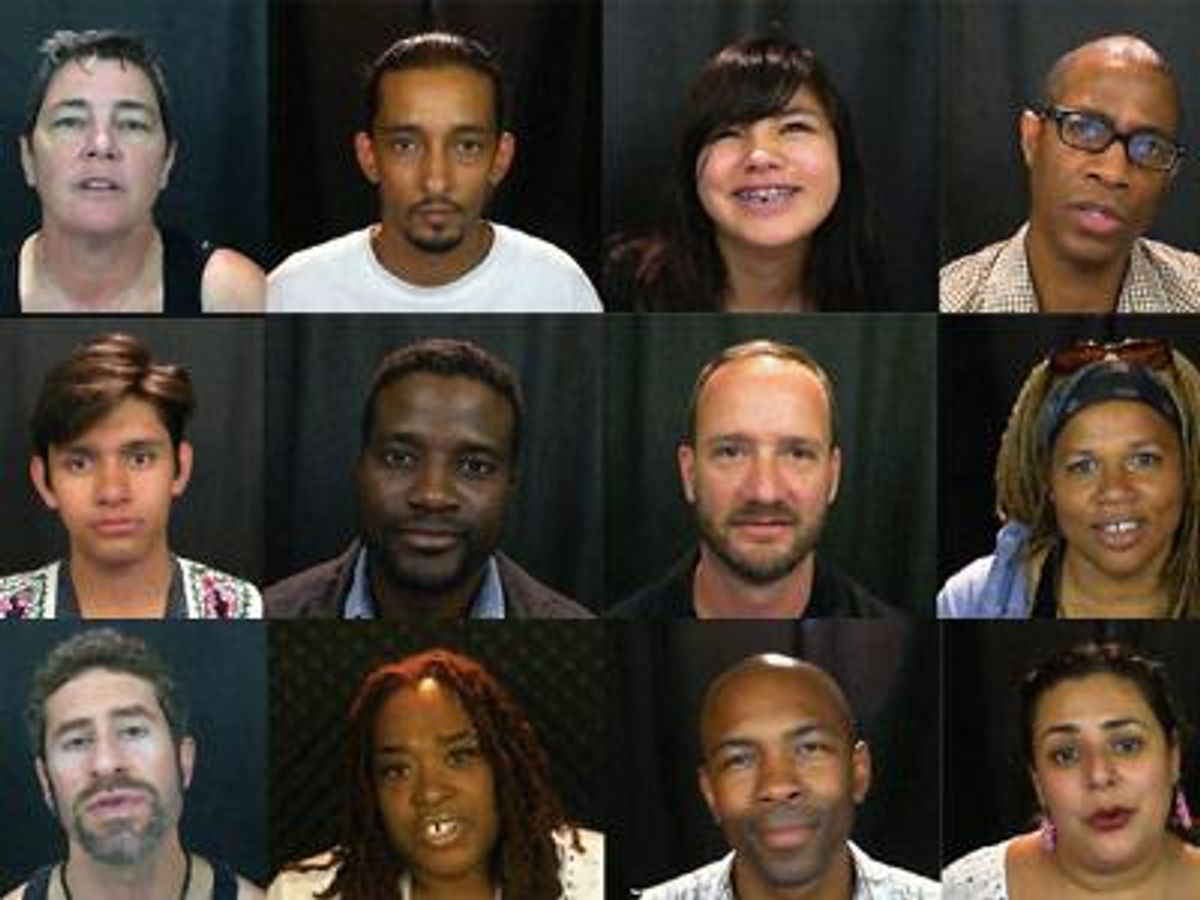
 Stories belong to everyone. As a filmmaker who is also openly HIV-positive, this has been one of my personal and creative mantras for many years. Every year on June 5th, this guiding principle takes on a deeper meaning for me as we quietly mark the solemn anniversary of the first time the Centers for Disease Control and Prevention publicly acknowledged the virus in 1981, admitting that a handful of gay men in Los Angeles had pneumocystis pneumonia (it was the first official recognition of what would later be called AIDS).
Stories belong to everyone. As a filmmaker who is also openly HIV-positive, this has been one of my personal and creative mantras for many years. Every year on June 5th, this guiding principle takes on a deeper meaning for me as we quietly mark the solemn anniversary of the first time the Centers for Disease Control and Prevention publicly acknowledged the virus in 1981, admitting that a handful of gay men in Los Angeles had pneumocystis pneumonia (it was the first official recognition of what would later be called AIDS).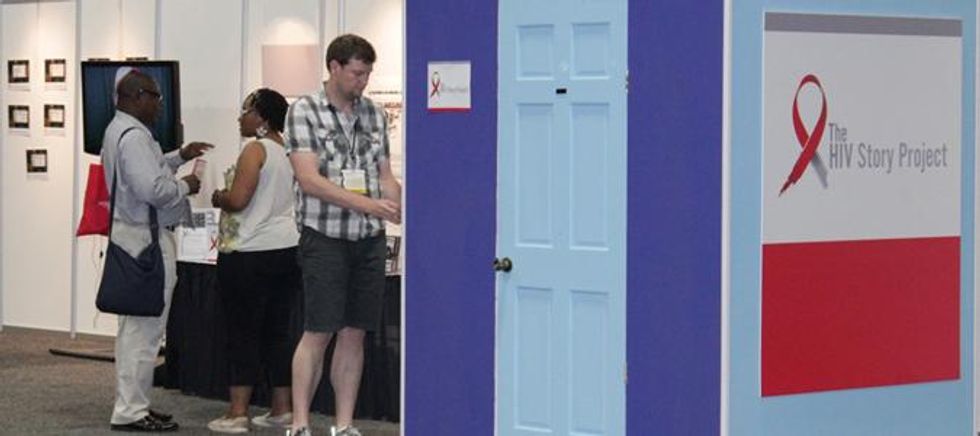 On June 5th, we now also mark National HIV/AIDS Long Term Survivors Awareness Day, especially to honor those who have been living with HIV since the earliest days of the pandemic. In fact, the launch of the Generations HIV online video archive has been deliberately timed to coincide with this commemoration to help communities connect the dots when it comes to the power and relevance of story.
On June 5th, we now also mark National HIV/AIDS Long Term Survivors Awareness Day, especially to honor those who have been living with HIV since the earliest days of the pandemic. In fact, the launch of the Generations HIV online video archive has been deliberately timed to coincide with this commemoration to help communities connect the dots when it comes to the power and relevance of story. Marc Smolowitz is an awarding winning independent filmmaker based in San Francisco. He works as a director, producer, and executive producer with a focus on powerful social issue filmmaking across all genres. In 2009, he co-founded The HIV Story Project, a nonprofit that bridges HIV/AIDS with film, media, and storytelling to fight the spread of the pandemic and the global
Marc Smolowitz is an awarding winning independent filmmaker based in San Francisco. He works as a director, producer, and executive producer with a focus on powerful social issue filmmaking across all genres. In 2009, he co-founded The HIV Story Project, a nonprofit that bridges HIV/AIDS with film, media, and storytelling to fight the spread of the pandemic and the global 































